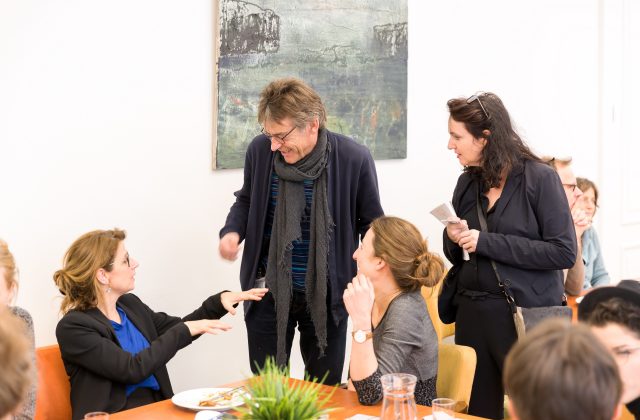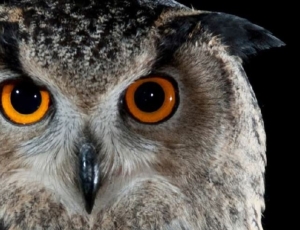
NIAS Theme Group Fellowships
For one semester, the Theme Group works on a self-chosen project that falls within the scope of the humanities and/or social sciences. Fellows may apply for a stipend or a Dutch University Grant, as well as reimbursement for daily commuting costs or subsidized accommodation in Amsterdam.
A NIAS Theme Group Fellowship provides the opportunity to collaborate daily on a specific research topic. The Fellowship at the Netherlands Institute for Advanced Study is also a true residency: all fellows commit to stepping away from their regular obligations to fully dedicate themselves to their research in NIAS’s international, multidisciplinary environment. In addition to offering uninterrupted time and space for the Theme Group’s research, the residency emphasizes intellectual and informal exchanges with other fellows. Participation in communal lunches and weekly seminars, where fellows present their work-in-progress, is a central aspect of the NIAS Fellowship experience.
To ensure the highest quality of your residency, NIAS requires fellows to be present at the Institute for at least four days per week, including attendance at the weekly fellows’ seminar on Thursdays. We strongly recommend that fellows make necessary arrangements with their home institutions before the start of their fellowship to fully immerse themselves in the residency.
More information on:
Who can apply
Both the Theme Group coordinator and its members must apply for the Theme Group Fellowship. To be considered eligible by NIAS, the following criteria and rules apply to both the coordinator and the other members:
- At least three years of post-Ph.D. academic experience.
- The project proposal must be related to the field of Humanities and Social Sciences.
- The coordinator and all Theme Group members must individually apply with their own project proposals.
- The coordinator must also submit a group project proposal.
- Proposals must not exceed 1,500 words, including footnotes but excluding the bibliography and abstract.
- The NIAS Fellowship does not constitute an employment relationship; fellows remain employees of their respective universities or research institutes, or they are self-employed. Therefore, NIAS is not obligated to make social insurance contributions or contribute to pension or unemployment insurance.
- Applicants may not resubmit a project proposal previously rejected by NIAS.
- Applicants can apply for only one type of fellowship per academic year (i.e., either a NIAS Individual Fellowship, one of the partnered Individual Fellowships, a NIAS Theme Group Fellowship, or a partnered Theme Group Fellowship).
- Applicants who previously held a fellowship at NIAS may only apply for a new Theme Group or Individual Fellowship if at least 10 years have passed since the application date of their previous fellowship.
- The Theme Group coordinator must provide the names of three international experts in their field who can serve as potential reviewers of the project (co-authors or scholars actively involved in the proposed research project are not permitted).
- The application must be completed accurately and include all required information and documentation.
The proposal
The proposal contains both the group application as well as the individual fellowship application forms of all group members. The group proposal (max. 1500 words, including footnotes, excluding bibliography and abstract) should include:
- Title, topic and main idea of the theme-group project
- Relation of the project to existing literature in the field
- Academic and societal relevance of the research project
- Methodology
- A description of the interdisciplinary character of the proposal, and expected benefit of group collaboration, and the manner in which the NIAS environment will contribute to this collaboration
- Intended research output (e.g. lectures, articles, monographs, constitution of databases, websites)
- A definitive list of the theme-group members (min. 2 – max. 4)
The proposal must be submitted via the application form on this website. All theme-group members should also submit their application, including a research proposal for their own individual project. It is recommended that the theme-group coordinator organizes this process since only applications that contain all individual fellowship forms will be selected for further evaluation. The theme group coordinator should provide both the theme group proposal and a proposal for his own individual project.
For your convenience, we have provided a blank application form to give you an idea of the information required.
Selection procedure
The selection procedure for a NIAS theme group consists of:
First round: checking on eligibility and basic academic quality criteria and collaborative motivations
To be eligible to apply, candidates must meet all formal eligibility criteria, the basic academic qualifications, and demonstrate clear collaborative motivations.The Selection Officer at NIAS ensures the application adheres to the eligibility requirements. The NIAS staff committee reviews the collaborative motivations detailed in the candidate’s application, ensuring this is in place and concrete. Applications that meet these requirements are forwarded to two external referees who evaluate the scientific content. Applications set aside by the NIAS staff committee are recorded and presented to the AAB during its Autumn meeting. The AAB will confirm the list and may request additional details regarding any rejections.
Second round: evaluation by external reviewers
Applications that meet all the formal requirements are sent to two selected external referees taken either from the panel of referees compiled by NIAS for the selection procedure, and/or from the three referees put forward by the applicant. The range of specialties of the NIAS panel of referees is broad which ensures that a wide variety of expertise and backgrounds is represented.
Third round: evaluation by Academic Advisory Board
The three Theme Group applications with the highest scores from the referees’ evaluations are presented to the NIAS Academic Advisory Board (AAB), which has the task of advising the NIAS directorate on the selection procedure and rank applicants, thereby taking into account the internal balance of the proposed year group, in terms of discipline, gender, phase in career, and regional diversity.
Fourth round: final selection by the director of NIAS
On the basis of the advice of the AAB and the additional criteria of available office space, accommodation and resources, the NIAS directorate makes decisions about the final allocation of fellowships.
The Director of NIAS informs the Theme group coordinator in writing of his decision no later than 15 December in the year that the application was submitted i.e. Theme groups who have been selected, Theme groups who have not been selected and Theme groups who have been placed on the reserve list.
Applicants are sent a Preliminary Offer by email. If the applicant accepts the offer, all the terms will be incorporated into the official Fellowship Agreement, a contract which is sent to applicants to sign before the fellowship. If the two parties have not come to mutual agreement by the 15th of April of the year following selection, the offer expires. If that is the case, the Director of NIAS will select a suitable new candidate from the reserve list.
The selection process takes up to 12 months.
Time path
Call for NIAS theme-group proposals for the academic year 2026/27:
- Call opens: 15 January 2025
- Call closes: 17 March 2025, 12.00h noon CET
- If the application does not meet the formal requirements the application will be rejected and the applicant will be informed by email before 15 May 2025.
- The Director of NIAS informs all eligible candidates in writing of his decision no later than 15 December 2025





